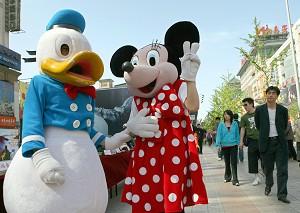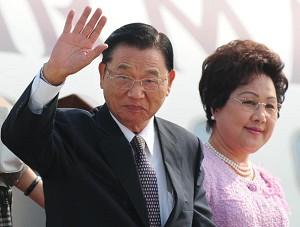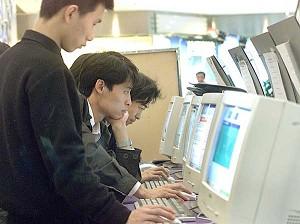China and the U.S. held consultations in Geneva from June 5 to 8, 2007 on the protection of intellectual property in China and the market access of publications. The meeting came as the U.S. filed a request for dispute settlement with the World Trade Organization (WTO) in April, accusing China of failing to take adequate measures to protect intellectual property and against rampant pirating and copying in that land.
The U.S. is not China’s only accuser; China is known in the world as the country where illegal copying is widespread. A Japanese TV program reported last month that the Beijing Shijingshan Amusement Park was suspected of copying famous cartoon characters in Disneyland in violation of intellectual property rights. Immediately after that report, several other foreign media outlets followed up, triggering a wave of media attacks on China’s illegal copying.
The Japanese TV program showed that there was a man dressed as the cartoon character Tigger from Disney’s Winnie the Pooh in the Shijiangshan Amusement Park, who yelled out in Pidgin English, “Five dollar one shoot,” charging five yuan (US$ 0.6 dollar) from tourists who wanted to take a picture with him. He didn’t know that the Tigger outfit he was wearing was unauthorized; still less was he aware that the people who came to videotape him were the crew from a Japanese TV program that had caught him red-handed.
The Shijingshan Amusement Park, just west of the fifth loop road of Beijing and built in 1986, was laid out in imitation of Disneyland with a castle in fairy tales as its trademark structure.
The Japanese TV footage revealed that staff dressed as popular cartoon figures such as Snow White, Seven Dwarfs, Tigger, Hello Kitty, Duola Ameng, to name a few, paraded in the park, charging tourists a fee for taking photos with them. They used these images without authorization from Disneyland or relevant Japanese authorities.
The program also showed that the peddlers in the park were openly displaying and selling imitated toy figures, such as Mickey Mouse, Minnie, the Clown fish in Finding Nemo, and Winnie the Pooh.
The park is only a miniature of the prevailing illegal copying problems on the streets of Beijing. Pirated goods in mainland China are flourishing thanks to their cheap prices; one pirated DVD movie costs only five yuan (US$ 0.6 dollar), which makes buying the authenticated version at a price ten or even twenty times higher much less attractive. Some people do not even want to pay for a copied DVD; instead, they opt for downloading free movies from the Internet.
People in China cannot care less about intellectual piracy. Westerners or Japanese tourists “do in Rome as the Romans do” too; they do not hesitate to buy copied goods when they come to China. One Beijing resident, a regular guide for foreign tourists, said, “When foreigners first came, they all appeared to feel disgusted with the copied goods. But later they changed, and bought a lot of them.”
According to statistics published by the European Commission on May 31, 2007, about 80 percent of the copied goods seized by the customs in the European Union come from China.
In response to the serious intellectual piracy problems in China, the U.S. officially filed a report with the WTO in April, and it underscored that Americans’ dissatisfaction has risen to the verge of a trade war.
Wang Guangze, a China commentator, said, “China has a serious intellectual piracy problem, so the U.S. indeed has the right to complain to the WTO. Since China has joined the WTO, it has a responsibility to address the ongoing illegal copying problems in its territory.”
Ultimately, who is to blame for this stubborn problem of intellectual piracy in China? Wang hit the nail on the head when he said, “Neither the U.S. nor the WTO, nor the Chinese people are at fault. The only party that’s at fault is the government in China.”




